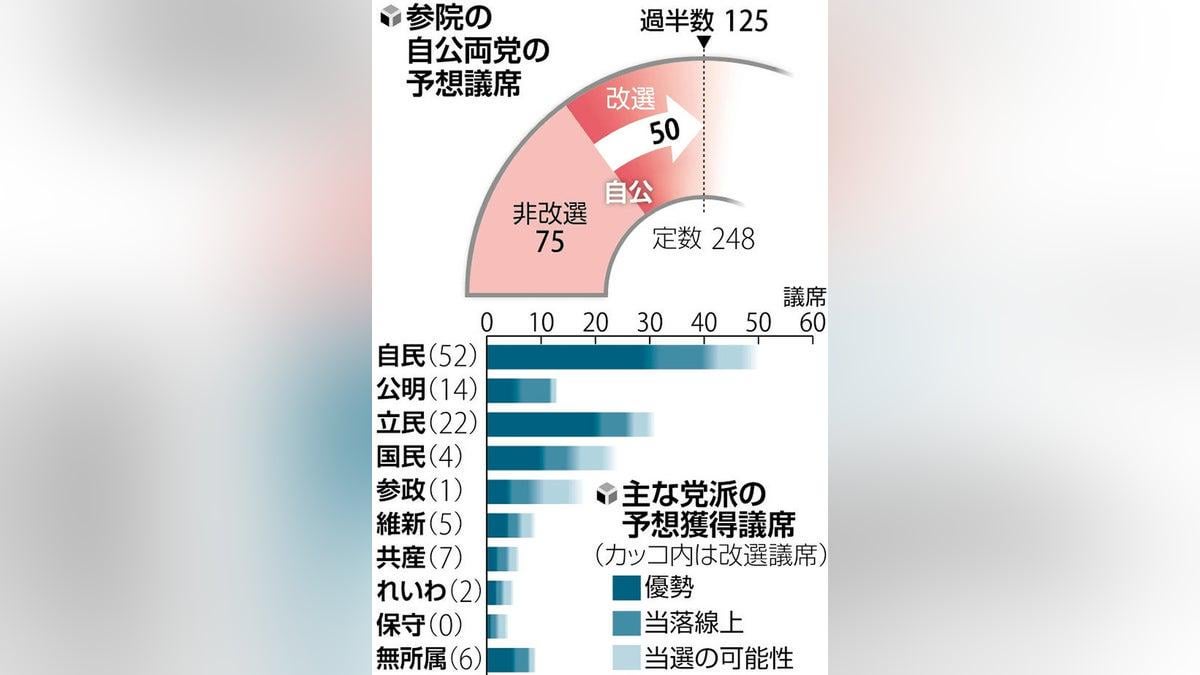
The Yomiuri Shimbun conducted a survey on July 3 and 4 ahead of Japan’s Upper House election on July 20. The survey included phone and internet responses, along with local reporting, to assess the early race.
Key findings:
- The ruling coalition (Liberal Democratic Party and Komeito) is struggling. The LDP may only win around 40 seats in local districts, and combined with Komeito, they might just barely reach 50 seats. That puts their ability to maintain a majority (125 seats total) at risk.
- The LDP is doing well in some conservative strongholds like Ishikawa, Fukui, Tottori-Shimane, and Yamaguchi, but it's trailing opposition candidates in parts of Tohoku, Shikoku, and Kyushu. In multi-member districts, such as Ibaraki and Shizuoka, the LDP may secure one seat each. But in larger districts with three or more seats, the competition is tight.
- Komeito is in close races in Saitama, Kanagawa, Osaka, and Hyogo. Its support in the proportional vote is also weakening, and it may lose seats from the 14 it holds now.
- The Constitutional Democratic Party (CDP) is leading in several single-seat districts like Nagano, Mie, and Oita, and is strong in larger districts like Hokkaido, Saitama, Chiba, and Kanagawa. Its proportional vote is expected to match its previous result of 7 seats.
- The Democratic Party for the People (DPP) is performing well, especially in the home district of its leader, Kagawa, and is leading in Shizuoka and Aichi. It may double its current proportional seat count.
- The Sanseitō party is expected to win a seat in the Tokyo district and gain a few seats in the proportional vote, showing strong momentum.
- Japan Innovation Party, Communist Party, and Reiwa Shinsengumi are in tough battles in multi-member districts.
- The new Japan Conservative Party may win its first Upper House seat through the proportional vote.
- Smaller parties like the Social Democratic Party, Saisei no Michi (Path of Renewal), and the NHK Party may also win seats.
In total, 522 candidates are running: 350 in local districts (75 seats) and 172 in the proportional vote (50 seats). The survey gathered responses from over 140,000 people. However, many respondents have not yet decided who they will vote for, so the situation may still change.
by MagazineKey4532
